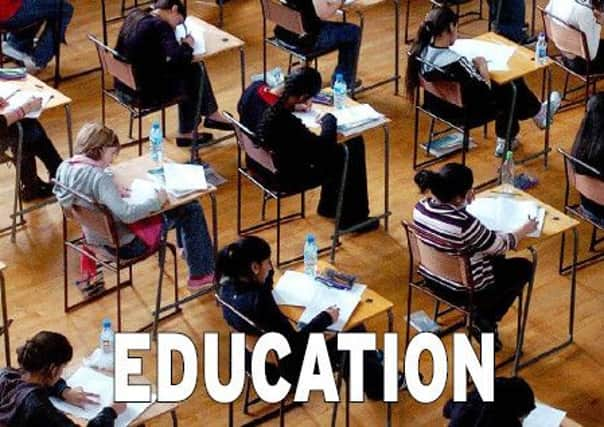Girls still leading the way for GCSE results
This article contains affiliate links. We may earn a small commission on items purchased through this article, but that does not affect our editorial judgement.


The figures were published by the Department for Education on Thursday (January 21) and showed girls at all six Crawley secondary schools outperformed the boys when it came to the number of good GCSE results achieved.
At Hazelwick, 58 per cent of boys achieved five or more A*-C grades, including A*-C in both English and maths, compared to 60 per cent of girls.
Advertisement
Hide AdAdvertisement
Hide AdAt Thomas Bennett the figures were 38 per cent boys, 41 per cent girls; at St Wilfrid’s they were 53 per cent boys, 56 per cent girls.
At Holy Trinity they were 58 per cent boys, 65 per cent girls; at Ifield Community College they were 31 per cent boys, 41 per cent girls; and at Oriel they were 56 per cent boys, 61 per cent girls.
Things were more balanced when it came to the progress made by each child between Key Stage 3 and the GCSEs, with boys often leading the way in maths but falling behind in English.
From next year, schools will no longer be judged on raw GCSE data but on a broader range of results across eight subjects – a change largely welcomed by headteachers.
Advertisement
Hide AdAdvertisement
Hide AdOne predicted the new system would “redress the imbalance” between boys and girls.
Rob Corbett, head of Ifield Community College, said: “For many years girls have outperformed boys at GCSE. Prior to the introduction of GCSE, boys outperformed girls.
“Perhaps the change back to terminal exams forced on us by the government will redress the imbalance.
“That said it is a strange system where you study for two years and your fate is determined solely by a series of tests in a short space of time.”
Advertisement
Hide AdAdvertisement
Hide AdA government consultation into the implementation of the English Baccalaureate (EBacc) in secondary schools comes to an end on Friday (January 29).
Michael Ferry, head of St Wilfrid’s School, expressed concern about the future of some non-academic subjects, which he felt were in danger of being squeezed out.
The implementation of the EBacc move would ensure children were studying more core subjects such as humanities and languages – whether their skills lay in that area or not – rather than selecting subjects which interested them or in which their talents lay.
Mr Ferry said: “In my opinion this is simply wrong as students should be allowed to use their talents to the full in the subjects that they enjoy and have a particular skill set for.
Advertisement
Hide AdAdvertisement
Hide Ad“If we go down the route of making some subjects, such as humanities and modern foreign languages seemingly more important than others then we run the risk of a school’s curriculum being devoid of creativity as subjects such as art, drama, music and PE become increasingly marginalised.”
Don’t miss out on all the latest breaking news where you live.
Here are four ways you can be sure you’ll be amongst the first to know what’s going on.
1) Make our website your homepage at www.crawleyobserver.co.uk
Advertisement
Hide AdAdvertisement
Hide Ad2) Like our Facebook page at www.facebook.com/crawleyobserver
3) Follow us on Twitter @Crawley_Obby
4) Register with us by clicking on ‘sign in’ (top right corner). You can then receive our daily newsletter AND add your point of view to stories that you read here.
And do share with your family and friends - so they don’t miss out!
The Crawley Observer - always the first with your local news.
Be part of it.